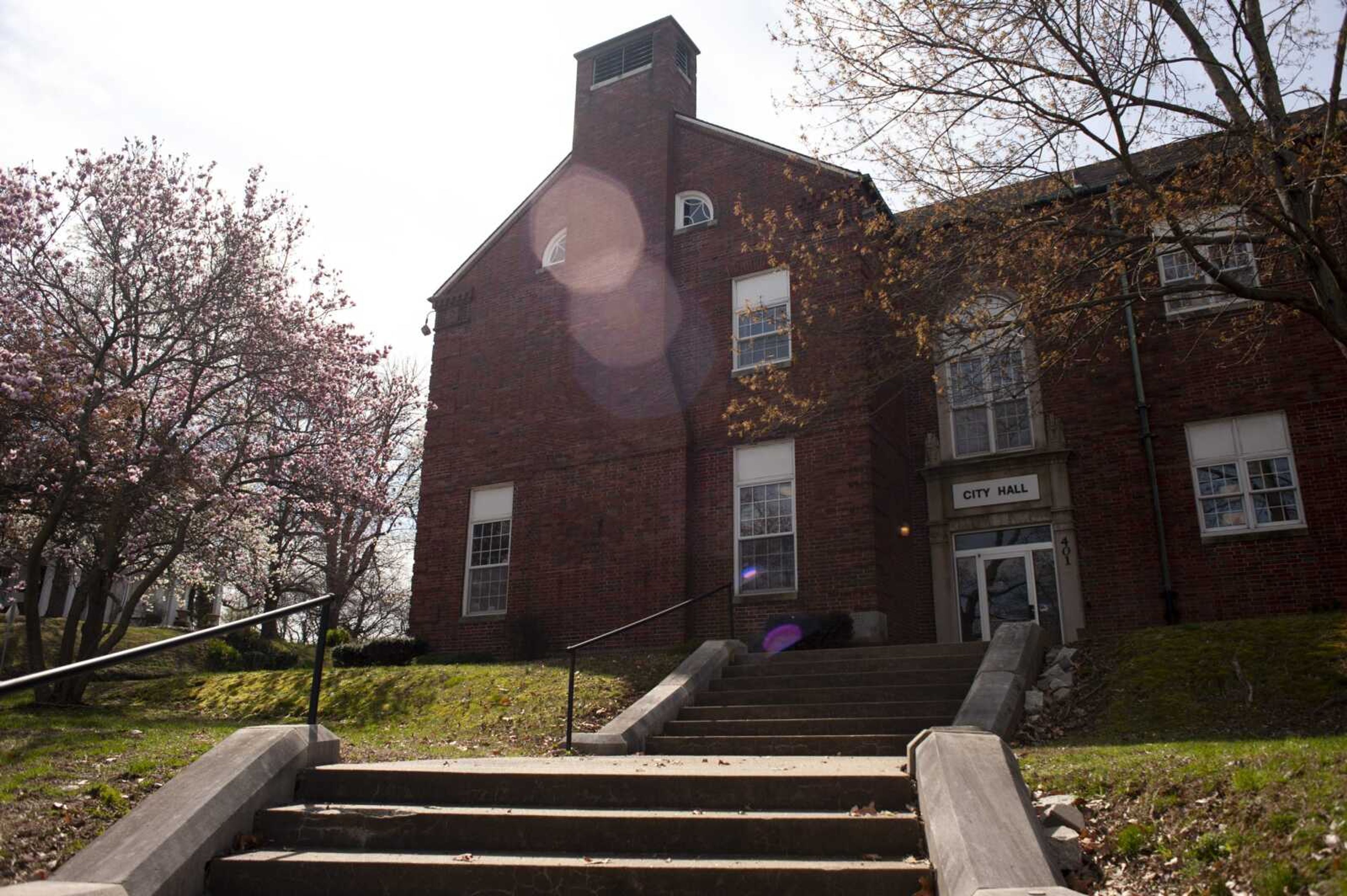Cape unveils $3.5 million plan for cyberattack, coronavirus recovery
Myriad imminent financial decisions will be waiting on the Cape Girardeau City Council’s agenda when it attempts to return to its regular venue of City Hall for its May 18 public meeting. For the third time since April 6, a public meeting was conducted Monday night via Zoom video conference call; and for the third time since April 6, no members of the public spoke during the period for public comment...
Myriad imminent financial decisions will be waiting on the Cape Girardeau City Council’s agenda when it attempts to return to its regular venue of City Hall for its May 18 public meeting.
For the third time since April 6, a public meeting was conducted Monday night via Zoom video conference call; and for the third time since April 6, no members of the public spoke during the period for public comment.
Cape Girardeau city manager Scott Meyer outlined plans to declare the coronavirus as a city emergency during the meeting, which would allow the city to use emergency funds for an estimated $3 million in cash flow for recovery shortfalls over the next year.
The city manager also noted a similar plan to use an estimated $340,000 in previously approved emergency funding for recovery efforts related to a January cyberattack on the City of Cape Girardeau, which was declared as an emergency at a March 2 meeting. About $160,000 of the funds would be used for the city’s insurance deductible, overtime and facility impacts; and $180,000 would be used for moving file servers to the cloud.
Both the estimated $3 million in COVID-19 recovery funding and the estimated $340,000 in cyberattack recovery funding would be drawn from the city’s emergency fund and the funds would then be repaid using casino tax revenue over the next three to four years.
To do so, Meyer said, would require the council’s passage of a measure at its next meeting to suspend current regulations regarding how the casino tax revenue may be spent.
The city manager also spoke about plans for the city’s budget for the next fiscal year, and ongoing efforts to offset “structurally recurring deficits” caused by missed local tax revenue from internet sales and out-of-state vendors. The first reading of the city’s proposed budget will also be heard at the council’s next meeting.
Additionally, Meyer detailed efforts made across all city departments to reduce these “structurally recurring deficits” and specifically highlighted efforts made by the city’s police, parks and public works departments to reduce costs in their departments.
Many council members commented on the pandemic’s acceleration of these recurring deficits, and the City Council expressed unanimous support of the proposed Wayfair legislation in Missouri, which would to require out-of-state retailers to collect sales taxes.
Ward 1 Councilman Dan Presson expressed his support of the city manager’s work, as well as John Richbourg in finance department, in “leaving no stone unturned” and “thinking differently about the way the city functions” to reduce previous deficits and handle looming financial hurdles.
Ward 4 Councilman Robbie Guard re-emphasized the importance of each council member reaching out to state legislators regarding the upcoming state Wayfair legislation, and Ward 3 Councilman Nate Thomas pointed to the number of recent online transactions as missed opportunities for local sales tax revenue.
Mayor Bob Fox echoed his council members’ ideas and also emphasized the value of recurring benefits such as a state use tax as opposed to other efforts that may provide one-time benefits.
“One-time funds to replace lost revenue are great,” Fox said, “but they don’t help you down the road.”
The mayor pointed to recent cuts to state education departments as one example of the residual costs of COVID-19, and warned his fellow local representatives to focus on long-term solutions to funding.
“The states aren’t going to get all that money replaced by the federal government. We taxpayers are going to have to make that money up somehow, too,” Fox said. “So, it’s a long-term solution we need to look at — not only for Cape Girardeau, but for every city and county in the State of Missouri.”
Another ongoing matter, a proposed aquatic project involving a proposed Jefferson Elementary leisure pool and improvements to the Central Municipal Pool, was planned to be discussed at a now-canceled City Council retreat. Meyer mentioned the project during his communications report, but only briefly, and noted the matter would be further discussed at the council’s next meeting.
Editor's note: This story has been corrected to note Dan Presson thanked John Richbourg of the finance department.
Connect with the Southeast Missourian Newsroom:
For corrections to this story or other insights for the editor, click here. To submit a letter to the editor, click here. To learn about the Southeast Missourian’s AI Policy, click here.








